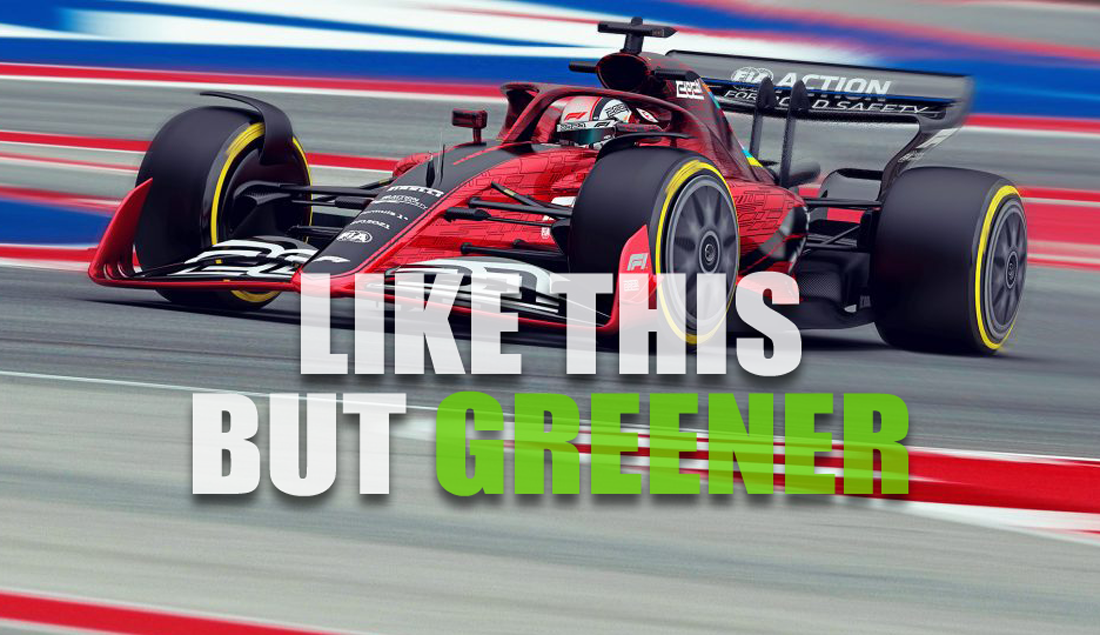December 18th, 2020 by Jo Borrás
Formula 1 is considered by many to be the very pinnacle of motorsport, where the most advanced racing cars in the world and 20 top drivers compete against each other to not just entertain, but to push the limits of automotive technology. Companies like Mercedes-Benz, Nissan, and Renault often credit motorsports for its role as a proving ground for road-going tech like anti-lock braking, traction control, and even hybrid powertrains. Now, Formula 1 will be taking on another leading development role with the introduction of what it’s calling a 100% sustainable, bio-waste derived fuel and a commitment to be carbon neutral in 2021.
Formula 1 operates under the jurisdiction of la Fédération Internationale de l’Automobile — rather, “the FIA,” as it’s commonly called — and FIA president Jean Todt has been instrumental in driving down the series’ carbon emissions in a bid to keep the series’ internal combustion aspects relevant in an automotive landscape that is rapidly shifting its focus to EVs. To that end, the FIA introduced hybrid-electric power units to Formula 1 and created the all-electric Formula E championship in 2014, and set up a dedicated Environment and Sustainability Commission in 2017 chaired by former Mexican President Felipe Calderón.
“(The) FIA takes its responsibility in leading motor sport and mobility into a low carbon future to reduce the environmental impacts of our activities and contribute to a greener planet,” says Todt, in the official release. “By developing sustainable fuel made from bio waste that can power Formula 1, we are taking a new step forward.”
Similar to how Porsche seems to view its own synthetic fuel research, the goal of using more sustainable and lower-emissions fuels in motorsport is one of the ways that the F1 circus is working to have the events themselves be carbon-neutral next year. The move is one of several intended both to reduce the competing teams’ operational costs and a more ambitious environmental strategy plan to have the sport be net zero by 2030 — a huge ask, considering all the flying and traveling teams need to endure during the course of a 20+ race season.
Which, I mean, it’s not a full-on switch to EVs for the top-shelf racing series, but any positive change is to be celebrated, right? (Right).
Also, it’s worth noting that while most of the other rule changes to Formula 1 that had been planned to kick off in 2021 have been delayed a year in response to the COVID-19 pandemic and the resulting hit to the global economy, the FIA is still holding firm to its goal of carbon neutrality in the fuels department (along with some, but not all, of the planned aero changes). You can check out some of the other big changes coming to F1 in the video below, and then scroll on down to the bottom of the page to tell us what you think about F1’s new sustainably-sourced biofuels in the comments.
Formula 1 Big Rule Changes for 2021
Source | Images: Formula 1, via the FIA.
Appreciate CleanTechnica’s originality? Consider becoming a CleanTechnica member, supporter, or ambassador — or a patron on Patreon.
Sign up for our free daily newsletter or weekly newsletter to never miss a story.
Have a tip for CleanTechnica, want to advertise, or want to suggest a guest for our CleanTech Talk podcast? Contact us here.
